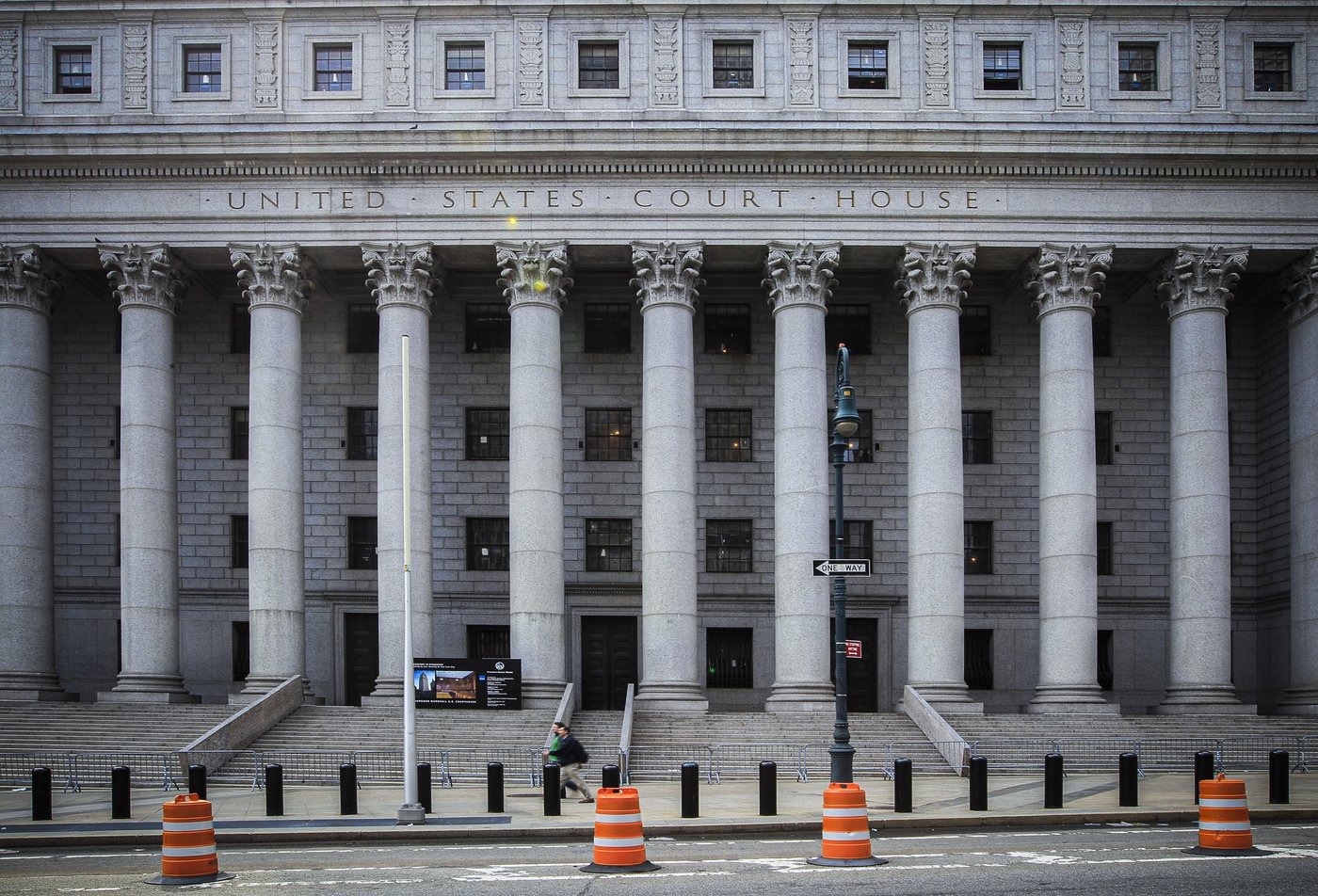
Appeals court overturns right-wing influencer’s conviction for spreading 2016 election falsehoods
NEW YORK (AP) — A federal appeals court on Wednesday overturned a self-styled right-wing propagandist’s conviction for spreading falsehoods on social media in an effort to suppress Democratic turnout in the 2016 presidential election.
The 2nd U.S. Circuit Court of Appeals in Manhattan ordered a lower court to enter a judgment of acquittal for Douglass Mackey, finding that trial evidence failed to prove the government’s claim that the Florida man conspired with others to influence the election.
Mackey, 36, was convicted in March 2023 in federal court in Brooklyn on a charge of conspiracy against rights after posting false memes that said supporters of Democratic candidate Hillary Clinton could vote for her by text message or social media post.
He was sentenced to seven months in federal prison.
“HALLELUJAH!” Mackey wrote on X after the 2nd Circuit’s decision was posted Wednesday. In follow up messages, he thanked God, his family, wife, lawyers and supporters, and threatened legal action over his conviction.

One of Mackey’s lawyers on his appeal was Yaakov Roth, who is now principal deputy assistant U.S. attorney general in charge of the Justice Department’s Civil Division.
The federal prosecutors’ office in Brooklyn that brought the case declined to comment.
In charging Mackey, prosecutors alleged that he conspired with others between September and November of 2016 to post memes, such as a photo of a woman standing in front of an “African Americans for Hillary” sign. “Avoid the Line. Vote from Home,” the tweet said. “Text ‘Hillary’ to 59925.”
About 5,000 people followed the meme’s instructions, according to trial testimony. Nearly all of them received an automated response indicating that the social media posts were not associated with the Clinton campaign, and there was “no evidence at trial that Mackey’s tweets tricked anyone into failing properly to vote,” the 2nd Circuit found.
Mackey, who had 58,000 followers at the time, posted under the alias Ricky Vaughn, the name of Charlie Sheen’s character in the movie “Major League.”
In overturning Mackey’s conviction, a three-judge 2nd Circuit panel wrote, “the mere fact” that he “posted the memes, even assuming that he did so with the intent to injure other citizens in the exercise of their right to vote, is not enough, standing alone, to prove a violation” of the conspiracy law.
“The government was obligated to show that Mackey knowingly entered into an agreement with other people to pursue that objective,” Chief Judge Debra Ann Livingston and Judges Reena Raggi and Beth Robinson wrote. “This the government failed to do.”
Livingston and Raggi were appointed by President George W. Bush, a Republican. Robinson was appointed by President Joe Biden, a Democrat.
At Mackey’s sentencing, the trial judge, Ann M. Donnelly, said that he had been “one of the leading members” of a conspiracy that was “nothing short of an assault on our democracy.”
The 2nd Circuit disagreed, ruling that the prosecution’s primary evidence of a conspiracy was flimsy at best.
At Mackey’s trial, prosecutors showed messages exchanged in private Twitter groups that they said proved an intent to interfere with people exercising their right to vote. However, the three-judge panel ruled that prosecutors “failed to offer sufficient evidence that Mackey even viewed — let alone participated in — any of these exchanges.”
“In the absence of such evidence, the government’s remaining circumstantial evidence cannot alone establish Mackey’s knowing agreement,” the judges wrote.
Join the Conversation!
Want to share your thoughts, add context, or connect with others in your community? Create a free account to comment on stories, ask questions, and join meaningful discussions on our new site.











Leave a Reply
You must be logged in to post a comment.